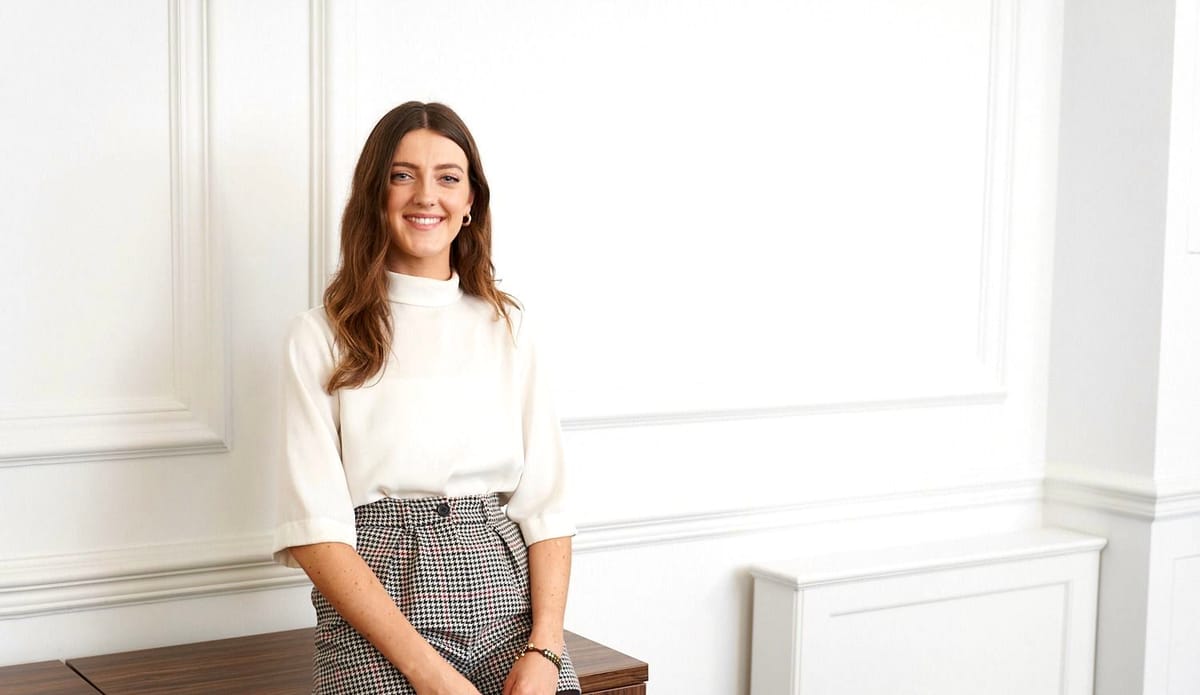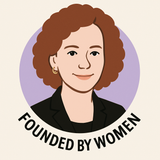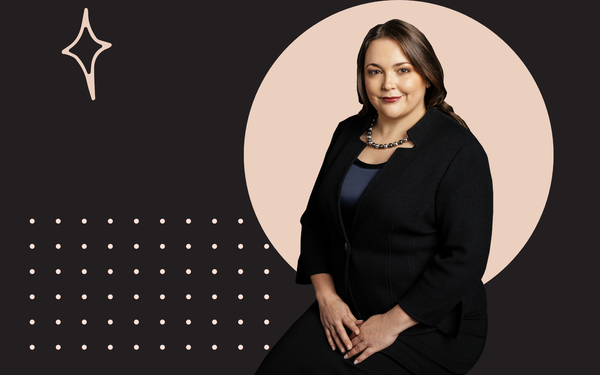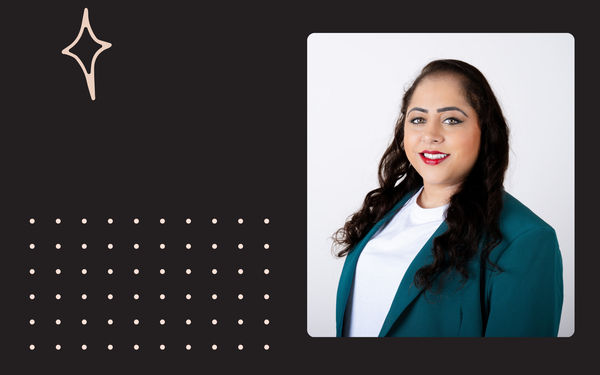From 24/7 C-Suite Support to Building Freedom: How Georgia Mills Created The Temp PA for Entrepreneurs Who Need Help But Aren't Used to Asking

For years, Georgia Mills had the experience, the skills, and the resume. She'd supported c-suite executives across London and Dubai, mastering the art of anticipation, crisis management, and keeping high-level operations running smoothly. But she had no freedom. She was on call 24/7, tied to a single income source, and stuck in a role that didn't match what she'd signed up for when she relocated to Dubai.
That tension between her London life and her new Dubai reality forced a reckoning: what did freedom actually mean to her? The answer was simple. She wanted to work from wherever she wanted, whenever she wanted, with multiple clients and multiple income streams. So she founded The Temp PA, a collective of skilled Virtual Assistants spread across the UK, Europe, and the Middle East, providing bespoke executive support to the clients traditional PA agencies often overlook: creatives with passion projects, early-stage founders, and entrepreneurs juggling multiple businesses.
The Temp PA was built on a somewhat selfish question: what kind of work do I actually want to do, and who do I want to work with? The answer wasn't big corporations doing endless filing. It was working with people building something exciting, even if those clients weren't used to trusting someone else to take things off their plate. Georgia's approach balances accessibility with quality, training her team to work in three efficient stages that keep costs down while delivering high-standard results.
In this conversation, Georgia shares how she built credibility as a new business owner with no testimonials, why she designed The Temp PA specifically for entrepreneurs on tighter budgets, and her advice for female founders building international remote teams while forgetting about the traditional 9-to-5.
Question 1: From Supporting C-Suite to Building Your Own Business
You have experience supporting c-suite executives and entrepreneurs before founding The Temp PA. What inspired you to transition from being a virtual assistant to building a collective of VAs across the UK, Europe, and Middle East? What challenges did you face in establishing credibility as a new business competing against traditional PA agencies, and how did your experience working with high-level executives prepare you for entrepreneurship?
I’d been working with c-suite executives for years, and while the experience was invaluable, the reality was that I had no freedom. I had to be available 24/7 and with only one source of income, the pressure was very intense. I then relocated from London to Dubai for a permanent role, but quickly realised the role I’d taken on wasn’t what I’d expected. I was also struggling with feeling torn between my two lives: the one I’d built in London and the new one I was trying to create in Dubai.
It made me realise that “freedom” for me meant being able to work from wherever I wanted, whenever I wanted. That wasn’t something I could get working for c-suite executives, but it’s exactly what I’ve created with The Temp PA. Now I have multiple clients, multiple income streams, and the flexibility to build a lifestyle that works for me.
The hardest part at the start was credibility. I had plenty of experience as a PA, but none as a business owner, and therefore no reviews or client testimonials. What I did have were my own skills. The qualities that make a good assistant (determination, initiative, problem-solving) are among the same ones you need to be an entrepreneur. I leaned into those, built my first relationships, and grew my business quickly from there. It's still growing, but I’m proud of where I am today.
Question 2: Making Executive Support Accessible
The Temp PA was created with the intention of "providing a more tailored service for those with personal projects, small businesses, and start-ups, in order to make personal assistance more accessible to those who really need it." Why do you think accessible executive support is particularly crucial for entrepreneurs and small business owners? How do you balance offering flexible, cost-effective services while maintaining the high-quality, bespoke support you're known for?
When I started The Temp PA, I chose my niche a little selfishly... I asked myself: what kind of work do I actually want to do, and who do I want to work with? The answer wasn’t big corporations, doing endless filing. I realised I loved working with creatives on passion projects, founders in the early start-up stages, and entrepreneurs with multiple businesses on the go. Those are the clients who excite me.
The tricky part is that these clients often aren’t used to working with assistants. They know they can do everything themselves, so trusting someone else to take things off their plate can be tough. The first few weeks are all about proving myself and showing the value I can add. Once that trust is there, the working relationships built are amazing. Not only that, the work is fun, creative, and genuinely makes a huge difference in their businesses and lives.
Of course, a lot of these start-up clients are on tighter budgets, so the balance is making sure the service is flexible and affordable, while still maintaining quality. My approach is to deliver work to the highest standard in the most efficient way possible. I’ve seen assistants spend hours over-perfecting something only for the client to wonder why it took so long. I train everyone who works with The Temp PA to work in three stages: gather as much info as possible and achieve as much as possible first, check in and ask questions second, and final touches last. That way we keep back-and-forth to a minimum, clients only pay for time that really matters, and they actually save time; which is what they really want.
Question 3: Building a Distributed Team Across Continents
You've built a team of skilled Virtual Assistants spread across the UK, Europe, and the Middle East. What strategies do you use to ensure consistency in service quality and maintain your company culture across different time zones and countries? What advice would you give to other female founders looking to build and scale remote, international teams while preserving the personalized touch that sets them apart?
Being a VA is naturally independent work, so we don’t usually rely on other team members to get things done. The main challenge is communication with clients, so I always emphasise the importance of quick, concise updates. Even if something isn’t finished yet, letting the client know it’s in progress makes a huge difference.
Therefore, even with independent working patterns, a great way to encourage great culture is ongoing learning. Through The Temp PA, I’ve created digital products to support organisation and VA skills, as well as virtual courses on becoming a high-quality assistant. I also launched The Temp PA Associates, a virtual space where VAs can network, ask questions, and stay connected. It’s been a great way to keep our assistants engaged, as well as keeping talented VAs connected around the world.
My advice to other female founders building international teams is to forget about the traditional 9–5. That doesn’t mean working 12-hour days, it just means structuring your day differently. I might take the morning off for coffee with a friend, then log on in the evening for US clients. Or start early if I need to connect with the Middle East. The beauty of entrepreneurship is that you get to design your schedule to suit you and your business, and that flexibility benefits both you and your clients.
Are you a woman leader with an inspiring journey to tell? Founded by Women is on a mission to elevate and amplify the voices of women making an impact.
If you're breaking barriers, driving change, or paving the way for others, we’d love to feature your story. Get in touch with us today!
👉 hi@foundedbywomen.org


